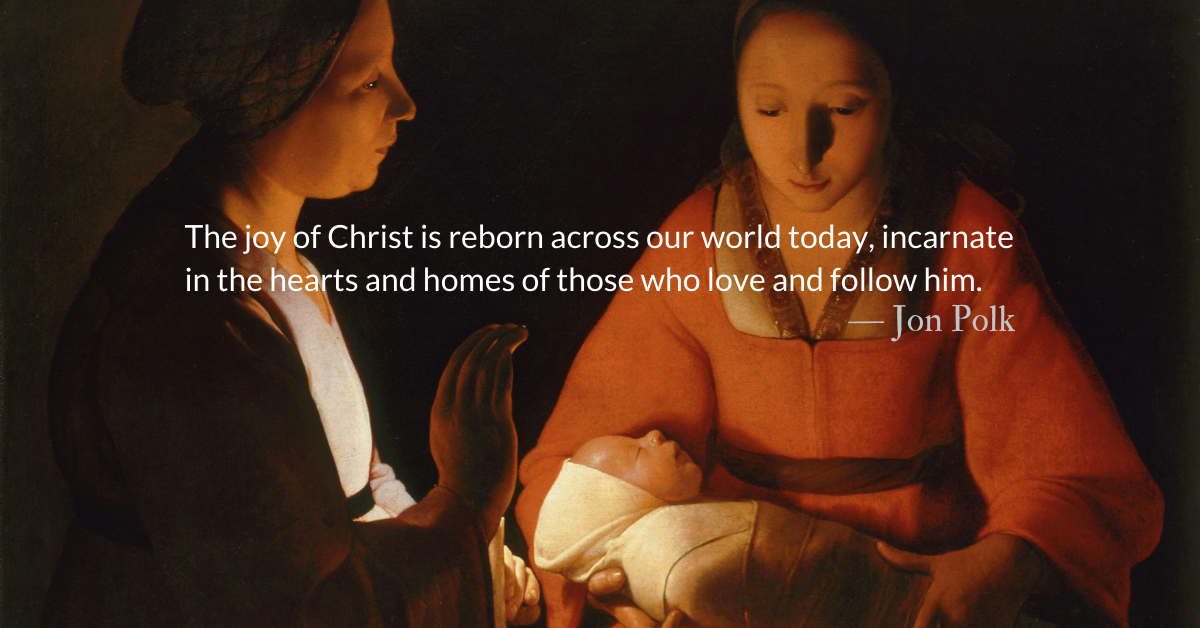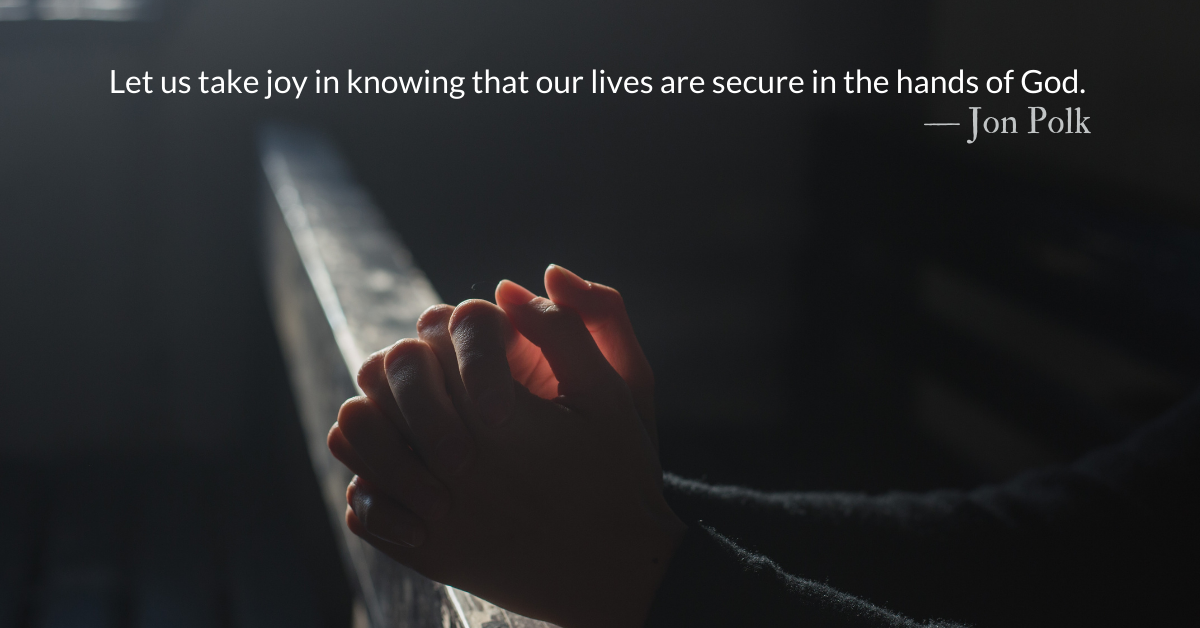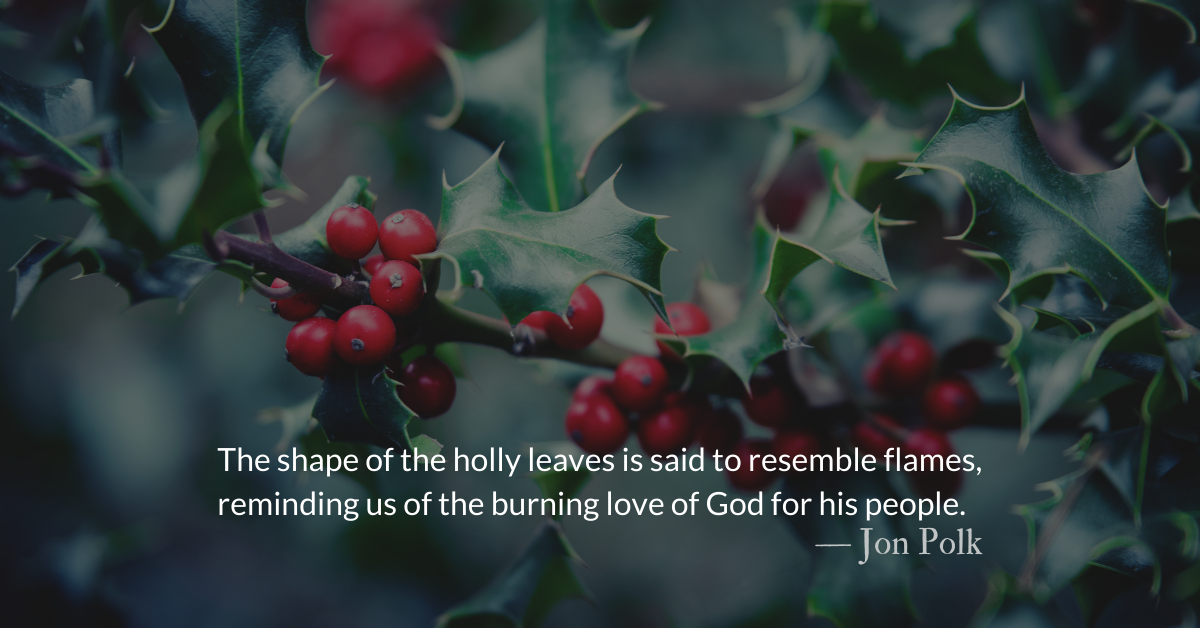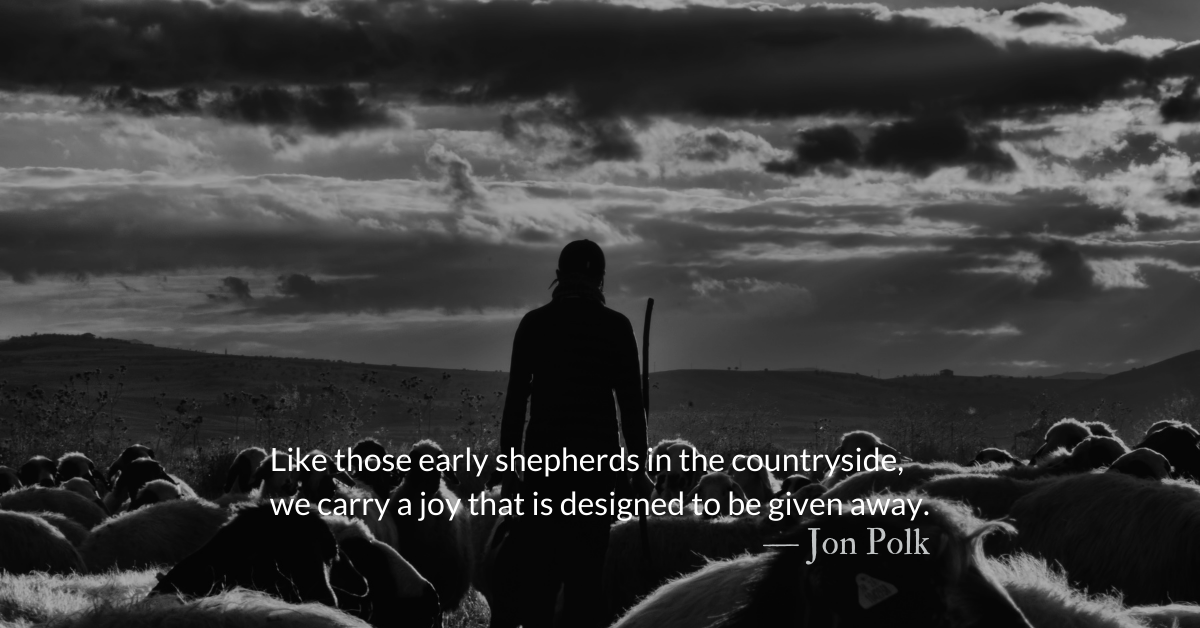Scripture Focus: John 8.12
12 When Jesus spoke again to the people, he said, “I am the light of the world. Whoever follows me will never walk in darkness, but will have the light of life.”
John 1.9-12
9 The true light that gives light to everyone was coming into the world. 10 He was in the world, and though the world was made through him, the world did not recognize him. 11 He came to that which was his own, but his own did not receive him. 12 Yet to all who did receive him, to those who believed in his name, he gave the right to become children of God.
Reflection: Bring a Torch, Jeannette, Isabella — Carols of Advent Joy
By Jon Polk
A quick search in any online Bible will reveal the obvious: no one in the pages of scripture is named Jeannette or Isabella.
Yet the lilting French carol, “Bring a Torch, Jeannette, Isabella,” describes these two young girls, with decidedly non-Jewish names, as having stumbled upon the stable in which Jesus was born.
Bring a torch, Jeannette, Isabella!
Bring a torch, to the cradle run!
It is Jesus, good folk of the village;
Christ is born and Mary’s calling.
Who are they?
As the story goes, Jeannette and Isabella are milkmaids who have gone to the stable to milk the cows. Overjoyed at their discovery of the newborn Jesus sleeping in the hay, the girls run back to their village to share the news and encourage the townsfolk to come see the baby. They are instructed to bring a torch, appropriate for the one who was born to be the light of the world.
Softly to the little stable.
Softly for a moment come;
Look and see how charming is Jesus,
How He is warm, His cheeks are rosy.
I do not recall this account in either Matthew or Luke’s infancy narratives.
“Bring a Torch, Jeannette, Isabella” originates from the Provence region of France in the 16th-17th centuries. The melody is a ritournelle, a lively court dance for French nobility. The lyrics and story likely take their inspiration from a 1640s painting by French painter Georges de La Tour, “The Newborn Child,” depicting two young French girls quietly cradling the holy infant.
This unique carol is steeped in provincial particulars of 17th century Provence, France, from the tune to the lyrics to the very names of the girls themselves. Even the La Tour painting presents the pair of maids in rural French, not Jewish, dress. Still today on Christmas Eve, French children in the Provence region dress as farmhands and carry candles while singing the carol as they process to midnight mass.
So goes the incarnation. Certainly, the historical Jesus was born in a particular place, Bethlehem in Judah, and at a particular time, sometime around 4BC. However, each year, Christ is born into our world again in thousands of places, from Bethlehem to Paris to Madrid to Shanghai to Los Angeles to Dubai to London to Singapore.
The joy of Christ is reborn across our world today, incarnate in the hearts and homes of those who love and follow him.
Bring a torch, Diego, Sophia, Omar, Ying, Cormac, Emma, Kwame, Nikolai, Sunyoung, Giovanni, and Jennifer, share the news with your villages that Christ is born!
As for you, dear reader, to whom will you carry the light and joy of Christmas this year?
Listen: Bring a Torch, Jeannette, Isabella by Jenny Gullen & Derri Daugherty
Read: Lyrics from Hymnary.org
View: The Newborn Child by Georges de La Tour
Divine Hours Prayer: The Greeting
Happy are they whom you choose and draw to your courts to dwell there! They will be satisfied by the beauty of your house, by the holiness of your temple. — Psalm 65.4
– Divine Hours prayers from The Divine Hours: Prayers for Autumn and Wintertime by Phyllis Tickle
Today’s Readings
Zechariah 5 (Listen – 1:35)
John 8 (Listen – 7:33)
This Weekend’s Readings
Zechariah 6 (Listen – 2:08), John 9 (Listen – 4:56)
Zechariah 7 (Listen – 1:57), John 10 (Listen – 4:44)
Read more about End of Year Giving and Supporting our work
Monthly giving sustains our work through the year. End-of-year giving helps us weather storms and launch new projects. Consider joining us for 2021.
Read more about Joyful Light of Repentance :: Joy of Advent
Exposure of our shortcomings can bring shame but joy comes in repentance.











